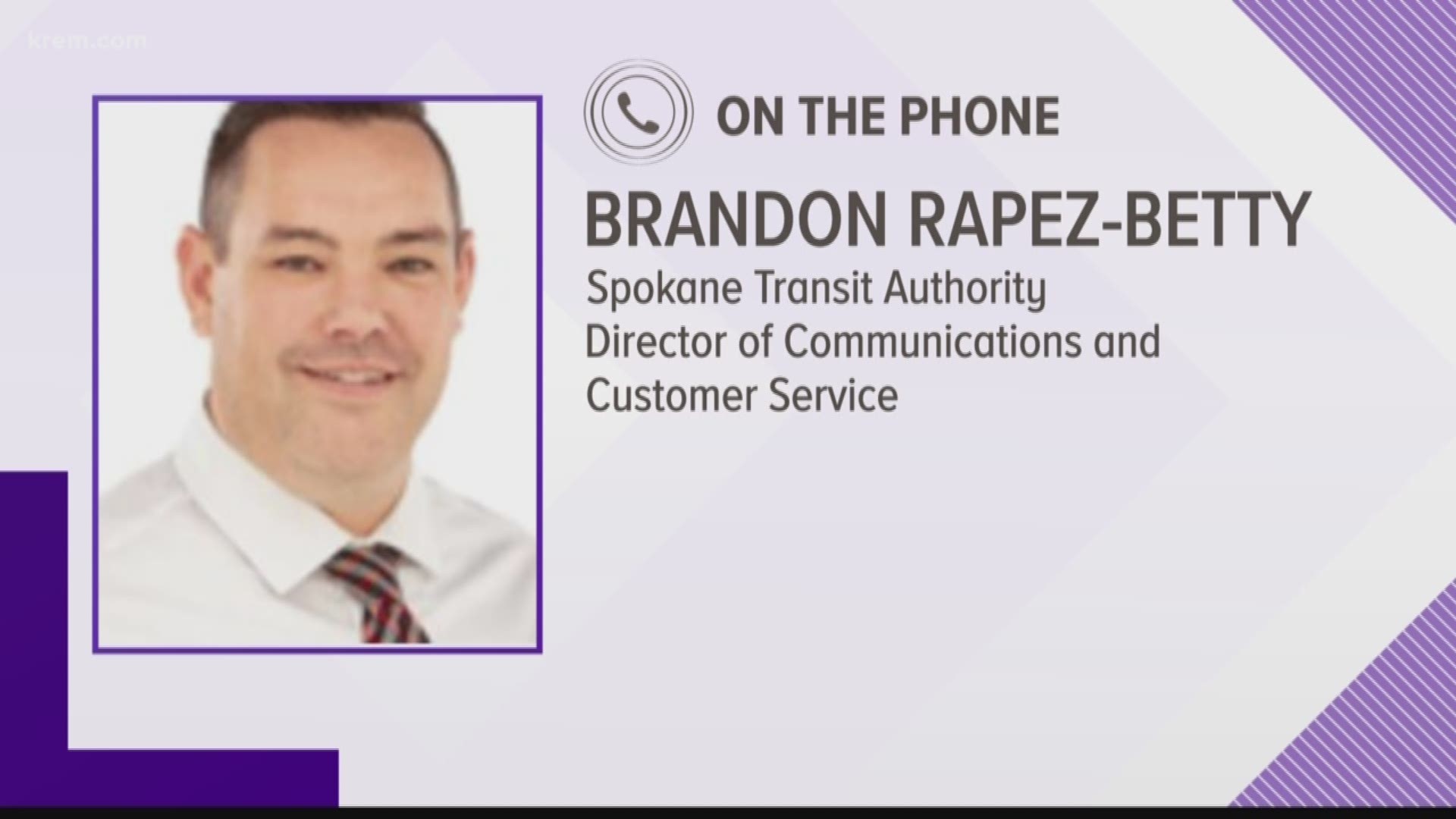SPOKANE, Wash. — Voters on election night made it clear they are in favor of Tim Eyman's $30 car tabs.
Though the measure is projected to pass, state agencies and politicians are pushing back against Initiative 976.
Many agencies are concerned about how the car tab cap could impact transportation funding for current and future projects. Most don’t know specific impacts quite yet, but do know it will cause major cuts across transportation budgets at the state and local level.
Seattle and King County are planning to file a joint lawsuit against the initiative. The Washington State Transit Association has also authorized legal action.
RELATED: $30 car tabs: Too good to be true?
So how could this measure impact Spokane? KREM 2 reached out to local agencies about potential impacts of I-976.
According to the Spokane Transit Authority:
- I-976 could reduce transportation funding by eliminating $1.48 billion over the next 6 years from the State Multi-Modal Account, which funds all modes of transportation projects, including public transportation, rail and bicycle/pedestrian projects.
- Spokane Transit funding may lose about $20 million in approved Regional Mobility Grant and Connecting Washington funds, affecting projects such as, the Central City Line ($11.7 million), the Cheney Line ($6.3 million), Monroe-Regal Line ($2 million).
- State funding for other transit projects that improve safety and access could be reduced or eliminated, impacting future projects such as the Sprague Avenue Corridor improvements, Division Street Corridor improvements, Interstate 90 Corridor improvements, and Mirabeau Park & Ride Lot improvements.
- Approximately $9.6 million in Special Needs Transportation (Paratransit service) funding could be eliminated in the next 6 years. Approximately $480,000 in potential funding from the Vanpool Investment Program, which helps transit agencies purchase Vanpool vehicles, could be eliminated in the next 6 years.
According to the The City of Spokane, I-976 could cause:
- Elimination of Spokane Transportation Benefit District (TBD) funding for street and pedestrian improvements. Within the limits of the City of Spokane, vehicle owners pay a $20 TBD fee for street and pedestrian improvements. The City collected about $3 million from this fee in 2018, and already has collected about $2 million in 2019. The bulk of this funding is dedicated to residential street improvements; it represents more than half the investment the City makes in residential streets annually. Additionally, 10 percent of the funding is earmarked to implement pedestrian projects, including constructing missing sidewalks and funding sidewalks around schools.
- Possible loss of state funding for City of Spokane transportation projects, including for the Motor Vehicle Fund, the Transportation Improvement Account, and the Multimodal Transportation Improvement account, among others. Some of these funds are used to provide grants and loans to cities, counties, and local transit agencies for street, bicycle, pedestrian, and transit projects. For example, the Transportation Improvement Account is tied to the Transportation Improvement Board (TIB). Recent City projects that TIB funding include Five Mile Road, MLK Jr Way, and Sunset Boulevard. The city also is seeking TIB funds for portions of the planned reconstruction of Riverside Avenue in downtown.
- Possible reduced investment in the Spokane area by WSDOT. Overall, the State Office of Financial Management projects that over the next six years the state would see a revenue loss of $1.9 billion and local governments would experience a loss of $2.3 billion. Lower funding levels could reduce WSDOT investment in the Spokane area. For example, the North Spokane Corridor construction is being paid for through the state’s Connecting Washington Funding Package, which includes revenues from passenger vehicle weight fees that would be reduced under this initiative. Vehicle weight fees account for $2 billion of the total $16 billion Connecting Washington package.
Jared Webley, the Spokane County spokesperson, said he expects the county board to discuss next steps on Tuesday at their first meeting since election night.
"Anything from no action, to legal action, to something in between. Everything is on the table right now, as far as what they may consider,” Webley said.
Gov. Jay Inslee released a statement on the results of Initiative 976 from Tuesday’s general election.
“Accordingly, in response to the will of the people, I am taking immediate action. I have directed the Washington State Department of Transportation to postpone projects not yet underway. I have also asked other state agencies that receive transportation funding, including the Washington State Patrol and Department of Licensing, to defer non-essential spending as we review impacts,” Inslee said.
A spokesperson from the governor's office said Inslee is asking agencies like the Washington State Department of Transportation to give him a list of recommendations by next week.
All of the agencies KREM 2 spoke with said they plan to work with the governor and legislature to figure out how to move forward.

